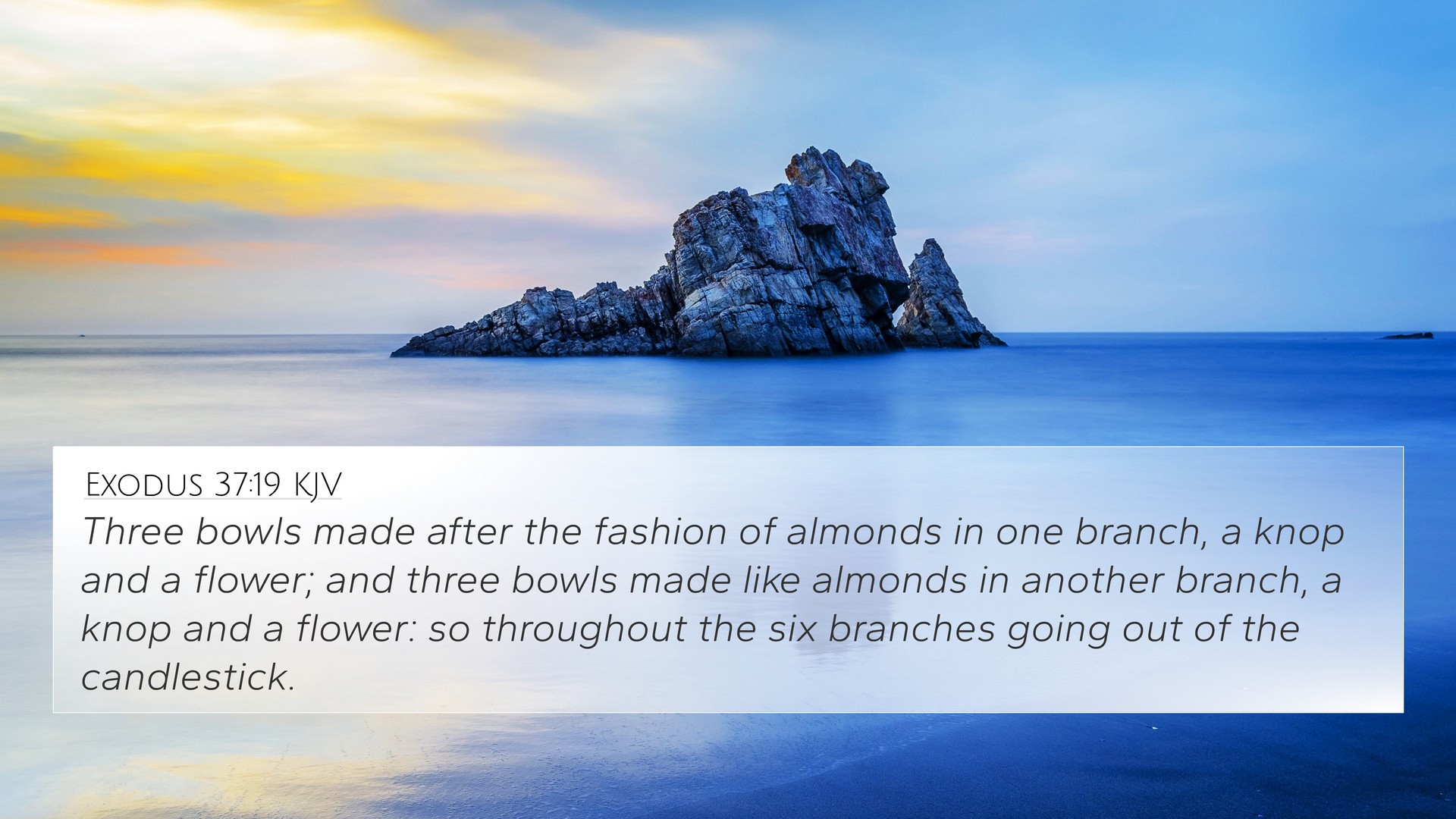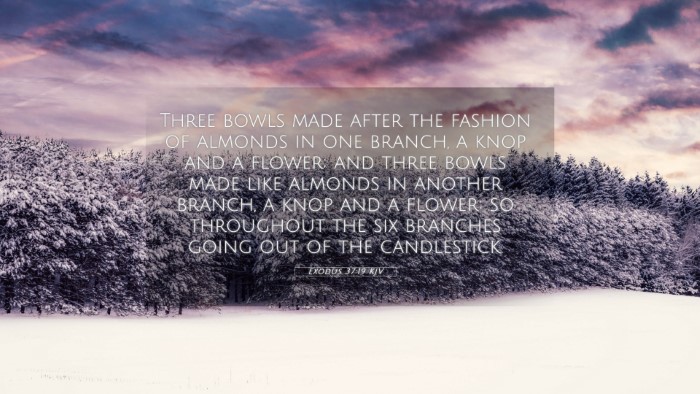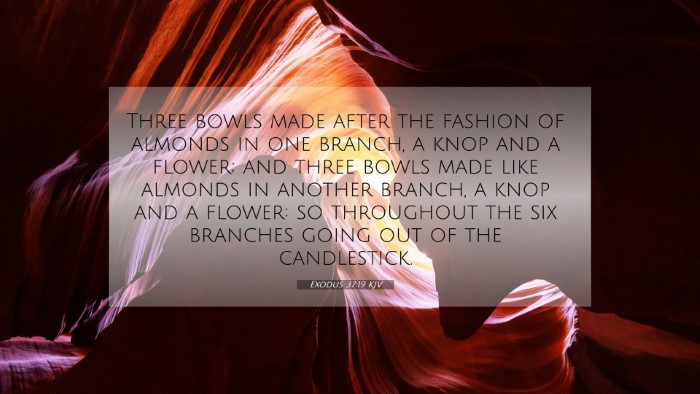Understanding Exodus 37:19
Exodus 37:19 (KJV): “And the work of the two cherubims was like unto the work of the two wings; their wings were spread out on high, covering the mercy seat with their wings, and their faces were one to another; even to the mercy seatward were the faces of the cherubims.”
The significance of Exodus 37:19 is found in its rich theological imagery and its portrayal of divine presence and protection. As we delve into various commentaries, we uncover layers of meaning elucidated by biblical scholars.
Commentary Insights
-
Matthew Henry:
Henry emphasizes the majesty of the cherubim as guardians of the mercy seat, illustrating the holiness and sanctity of God's presence. The positioning of their faces towards each other signifies unity in purpose and the reciprocal acknowledgment of God's majesty. This illustrates the idea that God is in communion with His creations.
-
Albert Barnes:
Barnes reflects on the craftsmanship of the cherubim, pointing out that their intricate design symbolizes divine protection and the glory of God. He highlights that their wings covering the mercy seat signify the covering of God's people, emphasizing themes of grace and mercy in the atonement.
-
Adam Clarke:
Clarke elaborates on the significance of the wings stretched out, as they represent a covering which indicates safety and refuge. This image correlates with God's provision and protection over the Israelites as well as His overarching sovereignty.
Thematic Connections
Exodus 37:19 not only illustrates the cherubim’s role but also connects to several themes within the broader biblical narrative, primarily the themes of protection, divine presence, and mercy. Below are biblical cross-references related to Exodus 37:19 that enhance our understanding:
- Numbers 7:89: Discusses the communication of God's commands from the mercy seat, reinforcing its sanctity.
- 1 Samuel 4:4: The significance of the Ark of the Covenant being accompanied by cherubim, symbolizing God’s presence amongst His people.
- Psalms 80:1: A plea for God to restore Israel, connecting to the protective aspect of the cherubim.
- Psalms 91:1-4: Speaks of the safety provided under God's wings, analogous to the protective wings of the cherubim.
- Isaiah 37:16: Acknowledges the Lord of hosts dwelling between the cherubim, echoing their role in divine sovereignty.
- Hebrews 9:5: Refers to the cherubim of glory overshadowing the mercy seat, tying New Testament themes of redemption back to the Old Testament understanding of atonement.
- Revelation 4:8: The four living creatures that resemble cherubim continually worship God, linking worship across the biblical timeline.
Comparative Bible Verse Analysis
To deepen understanding, we can perform a comparative study involving thematic Bible verse connections that reflect similar concepts of mercy, protection, and divine presence:
- Luke 1:78-79: The mercy shown through Jesus, a fulfillment of the mercy seat's function.
- John 14:2-3: Jesus preparing a place, suggesting continued divine dwelling with humanity, akin to the reassurance presented in the sanctuary.
Tools for Bible Cross-Referencing
For those interested in exploring these connections further, using a comprehensive Bible cross-reference guide can help facilitate the study of these themes across scriptures. Tools such as a Bible concordance, reference resources, and specific cross-reference study methods can provide insights into the theology woven throughout the narratives.
Conclusion
Exodus 37:19 reminds believers of God’s abiding presence and mercy. By examining cross-referenced scriptures and utilizing biblical resources, one can gain a richer understanding of how this verse intersects with broader biblical themes, enhancing both personal devotion and scholarly study.


